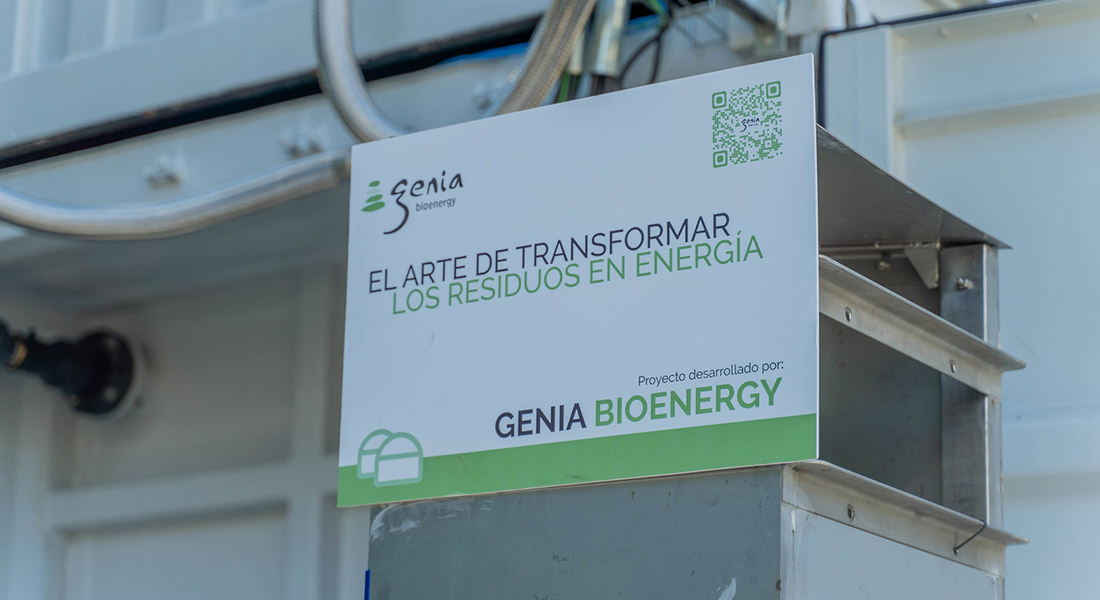
Grupo Piñero and Genia Bioenergy opt for biodigestion for energy self-consumption at Cayo Levantado Resort
- Grupo Piñero's new luxury resort, Cayo Levantado, incorporates an innovative microdigester to manage all organic waste produced.
- The waste is converted by natural "waste 2 energy" processes into energy and organic fertilizers.
Palma, April 9, 2024.- Cayo Levantado Resort, located in one of the most enigmatic places in the Dominican Republic (it occupies a small islet at the mouth of Samaná Bay), has incorporated an innovative microdigester to manage all its organic waste, thanks to Genia Bioenergy.
The resort, which has marked the entry of Grupo Piñero's Hotel Division into the high-end segment understood as sustainable innovation and sophistication, marks a new milestone for the sustainable luxury segment with the “regenerating luxury” concept; a proposal that revolves around a triple regeneration focused on the guest experience, respect and protection of the environment, as well as paying homage to the local culture.
In the words of Pablo del Toro, Head of Environmental Management, "one of the most critical points for the environmental management of the project was that, being a small island, all the organic waste produced by the hotel had to be taken to Santa Bárbara de Samaná for controlled disposal, with the consequent environmental and economic costs. With this project we are responding to this great challenge while taking advantage of its potential for the hotel's own energy consumption.”
This challenge has been met with an innovative solution that sets the standard for sustainability in the tourism sector. A small anaerobic digestion plant has been installed based on the SmallBiogas technology developed by the Spanish company Genia Bioenergy, specialized in waste to energy circular economy processes.
In this plant, all organic waste produced on the island undergoes a natural process of anaerobic digestion. In it, oxygen-free bacteria degrade organic matter into biogas (a sustainable gas with a high methane content), amendments and organic fertilizers that feed the resort's gardens, thus closing the circle when it comes to managing the bulk of the island's waste.
The gas obtained, some 42,000 Nm³/year, is used to feed a microgenerator that produces thermal energy and electricity for the resort's own consumption. With this microdigester, waste from kitchens and restaurants together with pruning waste from gardens and green spaces, as well as sludge from sewage treatment plants, are transformed from waste to by-products that give rise to renewable-source energy and fertilizers, reducing their carbon footprint and initiating a circular economy cycle.
According to Bernat Chulià, Director of Genia Bioenergy, “Biogas plants have the advantage that they can be adapted to each scenario with the objective of adding value to organic waste and by-products, turning them into a resource. There is great potential in the hospitality and food service sector, particularly in resorts where, in addition to kitchen and restaurant waste, there is also waste from gardening and tourism activities, such as golf.”
The new biodigester is in addition to other resort solutions based on self-consumption renewable energies such as solar panels, measures to reduce lighting and air conditioning consumption, and the installation of a water production plant based on the condensation of humidity in the air, which can produce up to 6,000 liters of water per day for the resort's needs.
In addition, Cayo Levantado Resort has taken care of the integration in the environment since its creation, preserving the biodiversity of flora and fauna of the island and the sea: it has avoided invasive flora and has regenerated its gardens with more than 700 plants of endemic or native species of the island, in addition to contributing to the conservation and restoration of coral reefs.
In short, Grupo Piñero and Genia Bioenergy have demonstrated that the reclamation and recycling of waste produced in tourism is an innovation that will help the sector to become a key vector for the decarbonization of the economy if companies opt for sustainable solutions.
 Share news
Share news








